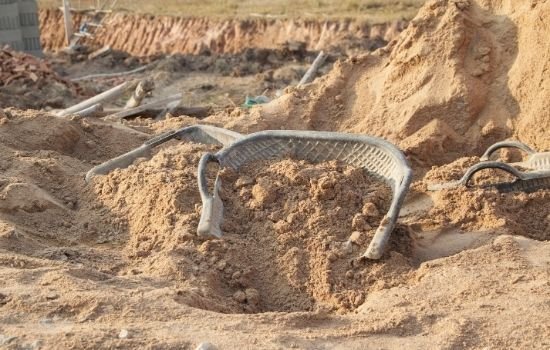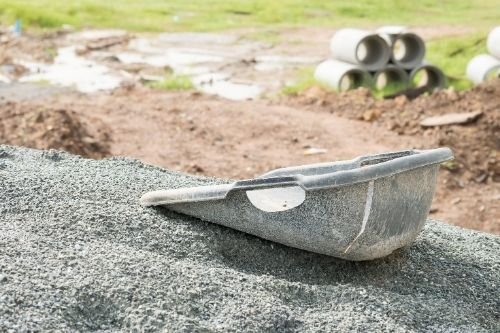
1. What is cellulose ether thickener?
Cellulose ether, especially HPMC, HEC thickener, is an essential commercial mortar component. For cellulose ether, its viscosity is an essential indicator that mortar manufacturers pay attention to, and high viscosity has almost become the primary demand of the mortar industry. Due to its technology, process, and equipment, it is difficult to ensure the high viscosity of cellulose ether products for a long time.
Therefore, the use of “thickener” has become the leading technical route for many cellulose ether manufacturers to manufacture high-viscosity products. Cellulose ether products have different effects on the properties of cement-based materials, including water retention, thickening, air entertainment, and retardation, compared to products under normal processes.
 “Thickener” also known as “viscosifier” is a crosslinking agent. In principle, the linear molecular structure of cellulose ether is cross-linked into a network, which improves the steric hindrance in the aqueous solution of cellulose ether. As a result, the cellulose ether aqueous solution shows high viscosity when tested, but it is a pseudo viscosity.
“Thickener” also known as “viscosifier” is a crosslinking agent. In principle, the linear molecular structure of cellulose ether is cross-linked into a network, which improves the steric hindrance in the aqueous solution of cellulose ether. As a result, the cellulose ether aqueous solution shows high viscosity when tested, but it is a pseudo viscosity.
Cellulose ether is used in mortar products as a water-retaining agent, thickener, and binder. It has an important influence on the operating performance, wet viscosity, operating time, and construction methods of the mortar system. These functions are mainly accomplished by forming hydrogen bonds between cellulose ether molecules and water molecules and the entanglement of cellulose ether molecules.
However, the addition of the viscosity-increasing agent takes up part of the hydrogen bonds on the molecular chain of the cellulose ether. It weakens the entanglement effect of the cellulose ether molecule, which undermines the water retention and wetting ability of the cellulose ether.
Most mortar manufacturers do not feel this, on the one hand, because the mortar products are still relatively rough and have not yet reached the stage of paying close attention to the performance of the operation; On the other hand, the viscosity we selected is much higher than the technically required viscosity. This part also compensates for the loss of water retention capacity, but there is obvious damage to the wetting performance.
2. The Influence of "Thickener" on the Performance of Cellulose Ether in Mortars
The cellulose ethers containing thickeners in the production process impact the final performance of the mortar. The MIKEM test shows the difference in tensile adhesive strength between cellulose products under normal process conditions and cellulose ether products added with thickeners in the production process used in tile adhesives after curing under different conditions.

- Under standard curing conditions, the addition of thickeners and cellulose ethers without thickeners in the production process has a specific effect on the tensile adhesive strength of the tile adhesive, and the products with thickener added in the production process have relatively high tensile adhesive strength.
- In terms of water resistance, cellulose ether with a thickener added in the production process is used. The tensile adhesive strength of tile adhesive is worse than that of products without thickener under the standard production process. Cellulose ethers containing thickeners affect the water-resistance of tile adhesives.
- In terms of drying, there are cellulose ethers with thickener added in the production process. When used in タイル接着剤, the tensile adhesive strength is significantly worse than that of products without thickeners under the normal production process, and drying time is shortened.
- In terms of setting time, the use of cellulose ether tile glue without a thickener under the standard production process has a faster curing speed.
3. In summary
The presence of the thickener and its cross-linking effect make the cellulose ether aqueous solution have a higher steric hindrance, manifested as a higher viscosity in the test. However, the presence of thickeners affects many important application properties of cellulose ethers, such as water resistance, drying time, and wetting properties.
 In fact, viscosity is only one of the performance indicators of cellulose ether. Viscosity is not the most critical indicator for the overall performance of cellulose ethers. Instead, the type and content of groups are the key points that mortar manufacturers should pay more attention to. It is also because mortar manufacturers pay too much attention to viscosity, which has prompted some cellulose ether manufacturers to increase viscosity by adding materials to meet the requirements of mortar manufacturers. Cellulose ether not only has a thickening effect in mortar, but also is a good 洗剤増粘剤.
In fact, viscosity is only one of the performance indicators of cellulose ether. Viscosity is not the most critical indicator for the overall performance of cellulose ethers. Instead, the type and content of groups are the key points that mortar manufacturers should pay more attention to. It is also because mortar manufacturers pay too much attention to viscosity, which has prompted some cellulose ether manufacturers to increase viscosity by adding materials to meet the requirements of mortar manufacturers. Cellulose ether not only has a thickening effect in mortar, but also is a good 洗剤増粘剤.
However, this kind of product has only a high apparent viscosity, and its all-around performance is worthy of users’ attention. Moreover, the high viscosity formed by thickening cannot achieve the “high viscosity and low content” theory that mortar manufacturers expect but do not exist.
Mortar manufacturers pursuing high quality and stable quality need to understand some information behind when choosing an essential raw material in mortar—–セルロースエーテル, which will help cellulose ether manufacturers develop high-performance products and ensure stable product quality.


返信を残す